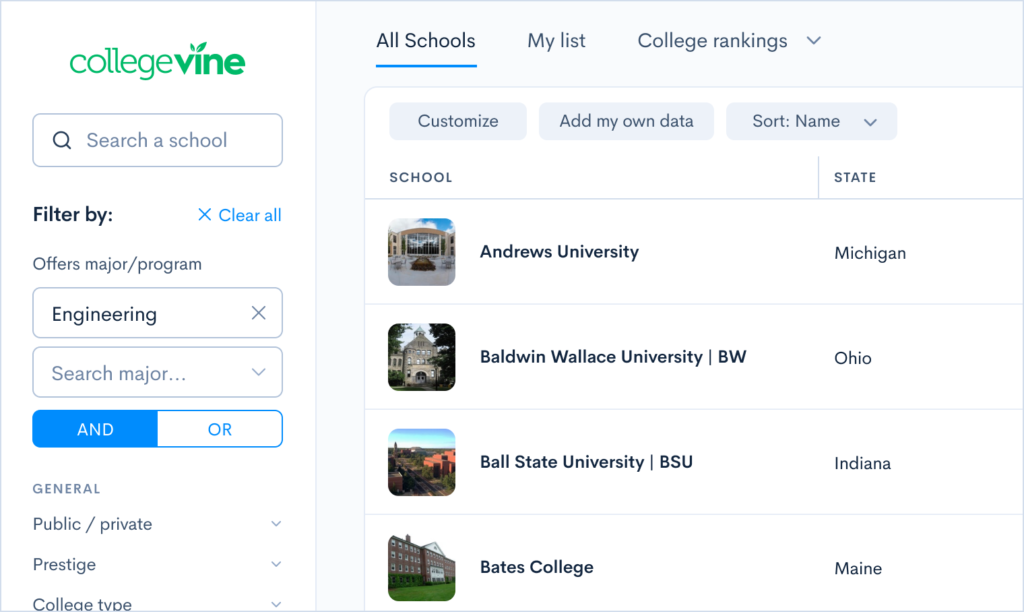What is CTE (Career & Technical Education)?
What is Career and Technical Education (CTE), you may ask? It’s a program offered in many high schools across the country that helps students explore different career options and fields of interest, learn soft skills that are highly valuable in the job market, and earn industry-recognized certifications. Ultimately students can make a smarter decision about which colleges to pursue, or whether college is not the right path at all. CTE allows students to explore different, often less traditional career options, find their passions, and leave high school with a much clearer picture of what comes next! With new technology, job markets are shifting and the skills gap is ever-present. In fact, more than half of the nation’s fastest growing careers, like jobs in healthcare, require education below a bachelor degree. How can you gain skills to make yourself marketable for these jobs? A good starting place is with CTE programs. Both in high school and at the postsecondary level, students have the opportunity to learn skills that prepare them specifically for in-demand careers in fields like healthcare, infrastructure and information technology. You’ll gain work-based learning experiences like job shadowing, mentorships, and internships and can earn college credit or achieve certification in a specific industry. On top of that, students who pursue CTE courses have higher high school graduation rates and take on less education debt on average, according to the Association for Career and Technical Education (ACTE). The programs are organized into 16 different career clusters, all of which lead to in-demand careers. Architectural Drafting, Accounting, Energy Technology, Culinary Arts, Web Design, Computer Information Systems, and Auto Mechanics are just a few of the careers that CTE programs allow students to explore. Work-based learning experiences like shadowing and internships are great opportunities for students to see if certain careers match their skills and interests. Students can earn credentials in many fields. For example, in health sciences, students can become Certified Medical Administrative Assistant (CMAA) or Certified Nursing Assistant (CNA). In the Business management cluster, the Project Management Professional (PMP) is a popular option.
CTE’s offer students the opportunity to gain experience in a professional setting through internships and apprenticeships. You’ll learn communication skills, time management, and be able to apply the problem-solving and critical thinking skills you learned in the classroom. Some courses like Career and Financial Management teach students to manage their money, file taxes, and balance a checkbook—all critical skills for students about to finish high school. Many students leave high school with no clue about what career they want to pursue. The CTE allows students to try different fields. You may realize college is not the best option for your career interests, or have a better idea of which college and major is right for you. CTE courses could even make your profile stand out in the admissions process. But most importantly, CTE can help you find your passions and professional strengths while still in high school. CTE may be taught at your high school and you don’t even know it! You can contact your school counselor to find out more information. If your school does not offer CTEs, your school counselor can suggest other institutions like community colleges that offer courses and certifications that interest you. You have many options after pursuing courses and certifications in CTE. Hopefully, you’ll have a clearer idea about your future career, and what further schooling you may need. Some students go on to earn certifications like: Certified Welder (CW), Certified Logistics Technician (CLT), Registered Nurse (RN), Cosmetologist, and Master Plumber. You may decide to enter the workforce, pursue a specialized technical training program or apprenticeship, or decide you want to apply to college. Whatever you chose, the CTE will help you see what opportunities are out there, beyond what you would have learned from a traditional high school experience. Yes, CTE acts as a bridge to college. In fact, with CTE you may be better prepared with a plan throughout college, knowing what major you want to pursue because you’ll have a better idea about your career goals. At certain colleges you can receive credit for the CTE courses and certifications you’ve completed, just like with AP exams. This is determined on a school by school basis, so we recommend you contact the colleges you are interested in to learn about which courses qualify. CTE will give you certain experiences that could help you stand out in the college admissions process, like demonstrating mastery of certain skills through internships or certifications. To better help you understand your chance of admission at different colleges, check out our free admissions calculator. You can input your courses, extracurriculars, test scores and more, and we’ll estimate your odds of acceptance. All you need to do is create a CollegeVine profile and you can find which colleges are right for you!
What’s Covered:
What is CTE?
CTE Career Clusters
5 Reasons to Pursue a CTE
1. Explore career options.
2. Build technical skills.

3. Develop professional skills.
4. Develop life skills.
5. Make an informed college choice.
How do I Enroll in CTE?
What Do I Do After My CTE?
Can I still Go to College?

